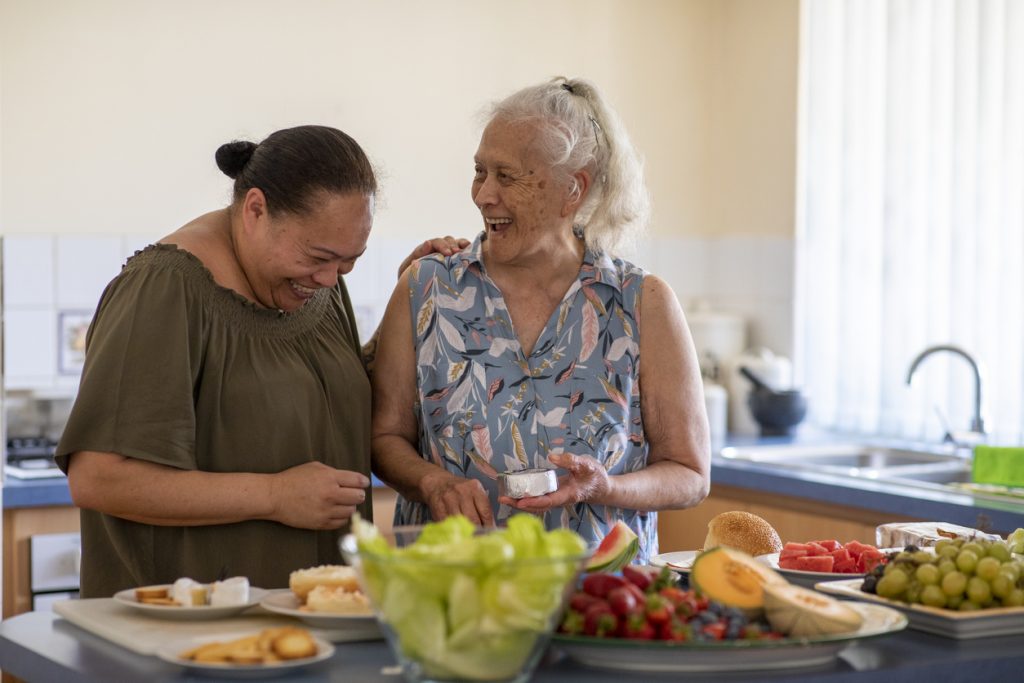What is the difference between perimenopause and menopause?
Perimenopause and menopause were traditionally words that women whispered to each other as they fan themselves and try not to bite someone’s head off.
While that stigma and negativity around them is slowly changing with more and more women feeling encouraged to speak up about this significant life change, many don’t know the difference between the two.

What is perimenopause?
Perimenopause refers to the stage in a woman’s life where her body is transitioning towards menopause and the end of her reproductive years. The ovaries start to produce less hormones (estrogen), in turn causing erratic cycles. While fertility is on the decline, women can still fall pregnant during perimenopause. Perimenopause can begin in some women in their 30’s but in the majority of women it usually happens anywhere between the age of 40 to 50.
What is menopause?
Menopause is when a woman experiences a decline in reproductive hormones, her ovaries stop releasing eggs and the menstrual periods stop.
Menopause is officially diagnosed when a woman hasn’t had her period for 12 consecutive months. Once that happens, she is no longer able to fall pregnant.
It can also be triggered early by surgery, a hysterectomy or removal of the ovaries which produce hormones. If an operation to remove ovaries and the uterus is not followed by a course of hormones, then menopausal symptoms will be experienced immediately.

What are the symptoms of perimenopause and how can they be managed?
Some or all the following will be experienced once a female is perimenopausal.
- Irregular periods or skipping periods
- Periods that are heavier or lighter than usual
- Mood changes
- Headaches
- Weight gain
- Breast tenderness
- Hot flushes
- Night sweats
- Forgetfulness
- UTIs
- Difficult concentrating
- Vaginal dryness and discomfort during sex
- Urinary urgency
- Fatigue
There are many ways to help manage the symptoms listed above, but as always, it’s best to check in with your health professional first to discuss your situation.
As with most conditions sleep, cutting down alcohol, stopping smoking and regular exercise can all help. A healthy, balanced diet is important too, so check that you are getting enough calcium and maintaining a healthy weight.
If you are experiencing symptoms, you should speak to a doctor to find out the right treatment for you. You can request a telehealth consultation with one of our Australian-registered doctors from anywhere in Australia, seven days a week.

What are the symptoms of menopause and how can they be managed?
Some, or all of the following can be experienced by women when they experience menopause.
- Irregular periods
- Vaginal dryness
- Hot flushes
- Chills
- Night sweats
- Sleep problems
- Fatigue
- Loss of scalp hair
- Anxiety
- Mood changes / depression
- Weight gain and slowed metabolism
- Reduced sex drive
Once again, a healthy diet, cutting down alcohol, stopping smoking and regular exercise can all have a huge impact on mood, sleep, and weight.
Avoid caffeine later in the day, start a night-time wind down routine (gentle yoga or meditation) and avoid napping in the day. These things can all help alleviate insomnia.
When do symptoms start and how long do they last?
In the case of perimenopause, it can begin as early as a woman’s 30’s but more likely to be in her 40’s. Some cases are short lived and the transition to menopause is swift, other women can remain perimenopausal for four to eight years.
Menopause tends to start between 45 and 55 and usually lasts about seven years, but can be as long as 14.
If you are experiencing symptoms, you should speak to a doctor to find out the right treatment for you. You can request a telehealth consultation with one of our Australian-registered doctors from anywhere in Australia, seven days a week.
To speak with an InstantScripts Doctor:
Request a ConsultationIf you have run out of your script:
Request a ScriptThe article was written by Cathrine Mahoney, a Sydney-based writer with a particular interest in women’s health, mental health and living well. Cathrine holds a Bachelor of Media Studies, is a columnist with Body+Soul, an author and commentator.
© InstantScripts
Level 8 / 637 Flinders St.,
Docklands VIC 3008

